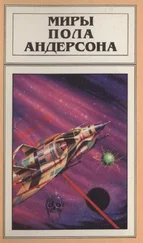Пол Андерсон - Explorations
Здесь есть возможность читать онлайн «Пол Андерсон - Explorations» весь текст электронной книги совершенно бесплатно (целиком полную версию без сокращений). В некоторых случаях можно слушать аудио, скачать через торрент в формате fb2 и присутствует краткое содержание. Год выпуска: 1981, Жанр: Фантастика и фэнтези, на английском языке. Описание произведения, (предисловие) а так же отзывы посетителей доступны на портале библиотеки ЛибКат.
- Название:Explorations
- Автор:
- Жанр:
- Год:1981
- ISBN:нет данных
- Рейтинг книги:5 / 5. Голосов: 1
-
Избранное:Добавить в избранное
- Отзывы:
-
Ваша оценка:
- 100
- 1
- 2
- 3
- 4
- 5
Explorations: краткое содержание, описание и аннотация
Предлагаем к чтению аннотацию, описание, краткое содержание или предисловие (зависит от того, что написал сам автор книги «Explorations»). Если вы не нашли необходимую информацию о книге — напишите в комментариях, мы постараемся отыскать её.
Explorations — читать онлайн бесплатно полную книгу (весь текст) целиком
Ниже представлен текст книги, разбитый по страницам. Система сохранения места последней прочитанной страницы, позволяет с удобством читать онлайн бесплатно книгу «Explorations», без необходимости каждый раз заново искать на чём Вы остановились. Поставьте закладку, и сможете в любой момент перейти на страницу, на которой закончили чтение.
Интервал:
Закладка:
"We got to get in touch." Kuroki's voice rose. (Thank heaven and some ages-dead engineer that sound mikes and earphones could be switched on by shoving your chin against the right button! With talk cut off, no recourse would have remained but to slip quietly into madness.) "God damn it, I tried to show that tin nightmare we're intelligent. I drew diagrams and—" He checked himself. "Well, probably its builders don't monitor it. We'll have another go when they show up."
"Let's admit the plain facts, Sam," Frederika said tonelessly. "There aren't any builders. There never were any."
"Oh, no." The pilot gave Darkington a beggar's look. "You're the biologist, Hugh. Do you believe that?"
Darkington bit his lip. "I'm afraid she's right."
Frederika's laugh barked at them. "Do you know what that big machine is, there in the middle of the cave? The one the robot is fooling around with? I'll tell you. His wife!" She broke off. Laughter echoed too horribly in their helmets.
Darkington gazed in that direction. The second object had little in common with the biped shape, being low and wide — twice the bulk — and mounted on eight short legs which must lend very
216
EXPLORA TIONS
little speed or agility. A radio lattice, optical lenses, and arms (two, not four) were similar to the biped's. But numerous additional limbs were long goosenecks terminating in specialized appendages. Sleek blued metal covered most of the body.
And yet, the way those two moved—
"I think you may be right about that also," Darkington said at last.
Kuroki beat the ground with his fist and swore. "Sorry, Freddie," he gulped. "But won't you, for God's sake, explain what you're getting at? This mess wouldn't be so bad if it made some sense."
"We can only guess," Darkington said.
"Well, guess, then!"
"Robot evolution," Frederika said. "After man was gone, the machines that were left began to evolve."
"No," said Kuroki, "that's nuts. Impossible!"
"I think what we've seen would be impossible any other way," Darkington said. "Metallic life couldn't arise spontaneously. Only carbon atoms make the long hookups needed for the chemical storage of biological information. But electronic storage is equally feasible. And… before the Traveler departed… self-reproducing machines were already in existence."
"I think the sea rafts must have been the important ones." Frederika spoke like someone in dream. Her eyes were fixed wide and unblinking on the two robots. "Remember? They were essentially motorized floating boxes, containing metallurgic processing plants and powered by solar batteries. They took dissolved minerals out of sea water, magnesium, uranium, whatever a particular raft was designed for. When it had a full cargo, it went to a point on shore where a depot received its load. Once empty, it returned to open waters for more. It had an inertial navigation
EPILOGUE
217
device, as well as electronic sensors and various homeostatic systems, so it could cope with the normal vicissitudes of its environment.
"And it had electronic templates which bore full information on its own design. They controlled mechanisms aboard, which made any spare part that might be needed. Those same mechanisms also kept producing and assembling complete duplicate rafts. The first such outfit cost hundreds of millions of dollars to manufacture, let alone the preliminary research and development. But once made, it needed no further investment. Production and expansion didn't cost anyone a cent.
"And after man was gone from Earth… all life had vanished… the sea rafts were still there, patiently bringing their cargoes to crumbling docks on barren shores, year after year after meaningless year—"
She shook herself. The motion was violent enough to be seen in armor. "Go on, Hugh," she said, her tone turned harsh. "If you can."
"I don't know any details," he began cautiously. "You should tell me how mutation was possible to a machine. But if the templates were actually magnetic recordings on wire or tape, I expect that hard radiation would affect them, as it affects an organic gene. And for a while there was certainly plenty of hard radiation around. The rafts started making imperfect duplicates. Most were badly designed and, uh, foundered. Some, though, had advantages. For. instance, they stopped going to shore and hanging about for decades waiting to be unloaded. Eventually some raft was made which had the first primitive ability to get metal from a richer source than the ocean: namely, from other rafts. Through hundreds of millions of years, an ecology developed. We might as well call it an ecology. The land was reconquered. Wholly new types of machine proliferated. Until today, well, what we've seen."
218
EXPLORAT/ONS
"But where's the energy come from?" Kuroki demanded.
"The sun, I suppose. By now, the original solar battery must be immensely refined. I'd make a guess at dielectric storage on the molecular level, in specialized units — call them cells — which may even be of microscopic size. Of course, productivity per acre must be a good deal lower than it was in our day. Alloys aren't as labile as amino acids. But that's offset to a large extent by their greater durability. And, as you can see in this cave, by interchangeability."
"Huh?"
"Sure. Look at those spare parts stacked in the rear. Some will no doubt be processed, analogously to our eating and digesting food. But others are probably being kept for use as such. Suppose you could take whole organs from animals you killed and install them in yourself to replace whatever was wearing out. I rather imagine that's common on today's Earth. The 'black box' principle was designed into most machines in our own centruy. It would be inherited."
"Where's the metal come from in the first place?"
"From lower types of machine. Ultimately from sessile types that break down ores, manufacture the basic alloys, and concentrate more dielectric energy than they use. Analogous to vegetation. I daresay the, uh, metabolism involves powerful reagents. Sulfuric and nitric acids in glass-lined compartments must be the least of them. I doubt if there are any equivalent of microbes, but the ecology seems to manage quite well without. It's a grosser form of existence than ours. But it works. It works."
"Even sex." Frederika giggled a little crazily.
Darkington squeezed he.r gauntleted hand until she grew calmer. "Well," he said, "quite probably in the more complex machines, reproduction has
EPILOGUE
219
become the specialty of one form while the other specializes in strength and agility. I daresay there are corresponding psychological differences."
"Psychological?" Kuroki bridled. "Wait a minute! I know there is — was — a lot of loose talk about computers being electronic brains and such rot, but—"
"Call the phenomenon what you like," Darkington shrugged. "But that robot uses tools which are made, not grown. The problem is how to convince it that we think."
"Can't it see?" Frederika exclaimed. "We use tools too. Sam drew mathematical pictures. What more does it want?"
"I don't know enough about this world to even guess," Darkington said tiredly. "But I suppose… well… we might once have seen a trained ape doing all sorts of elaborate things, without ever assuming it was more than an ape. No matter how odd it looked."
"Or maybe the robot just doesn't give a damn," Kuroki said. "There were people who wouldn't have."
"If Hugh's guess about the 'black box' is right," Frederika added slowly, "then the robot race must have evolved as hunters, instead of hunting being invented rather late in their evolution. As if men had descended from tigers instead of simians. How much psychological difference would that make?"
No one replied. She leaned forlornly against Darkington. Kuroki turned his eyes from them, perhaps less out of tact than loneliness. His girl was several thousand miles away, straight up, with no means for him to call her and say goodby.
Читать дальшеИнтервал:
Закладка:
Похожие книги на «Explorations»
Представляем Вашему вниманию похожие книги на «Explorations» списком для выбора. Мы отобрали схожую по названию и смыслу литературу в надежде предоставить читателям больше вариантов отыскать новые, интересные, ещё непрочитанные произведения.
Обсуждение, отзывы о книге «Explorations» и просто собственные мнения читателей. Оставьте ваши комментарии, напишите, что Вы думаете о произведении, его смысле или главных героях. Укажите что конкретно понравилось, а что нет, и почему Вы так считаете.












